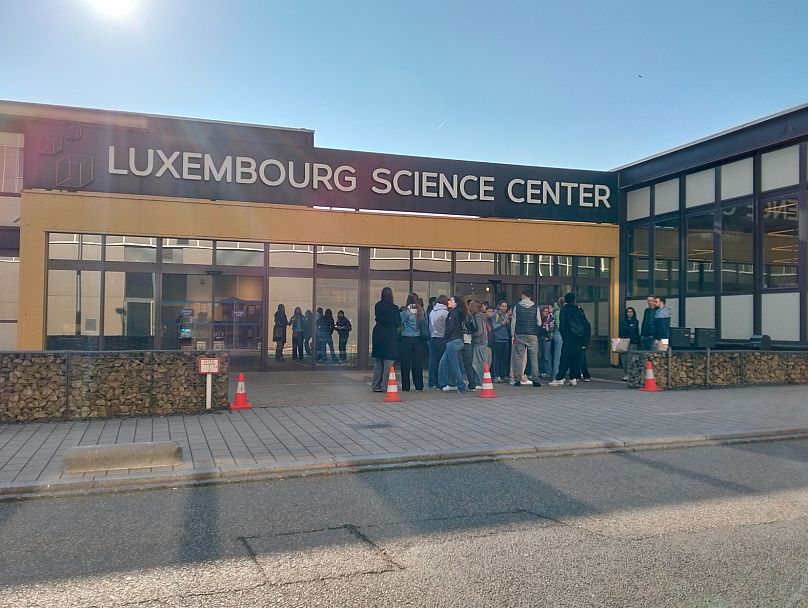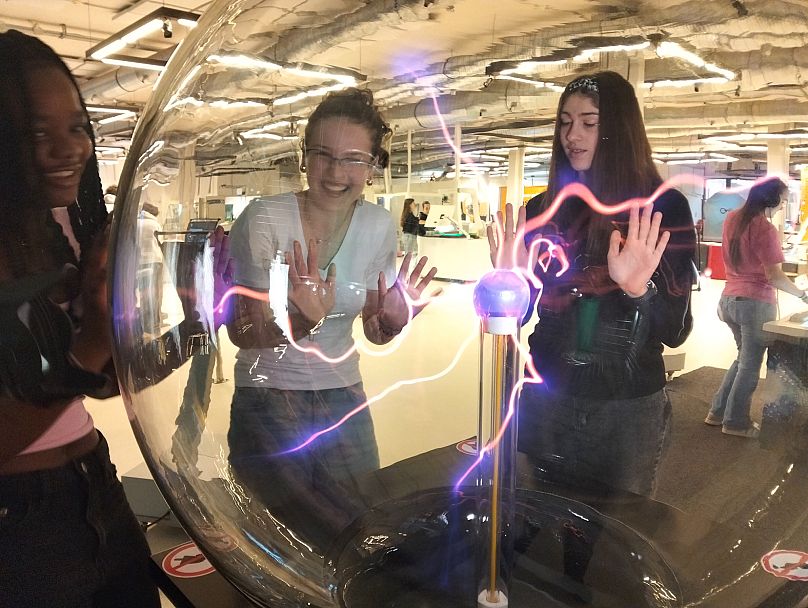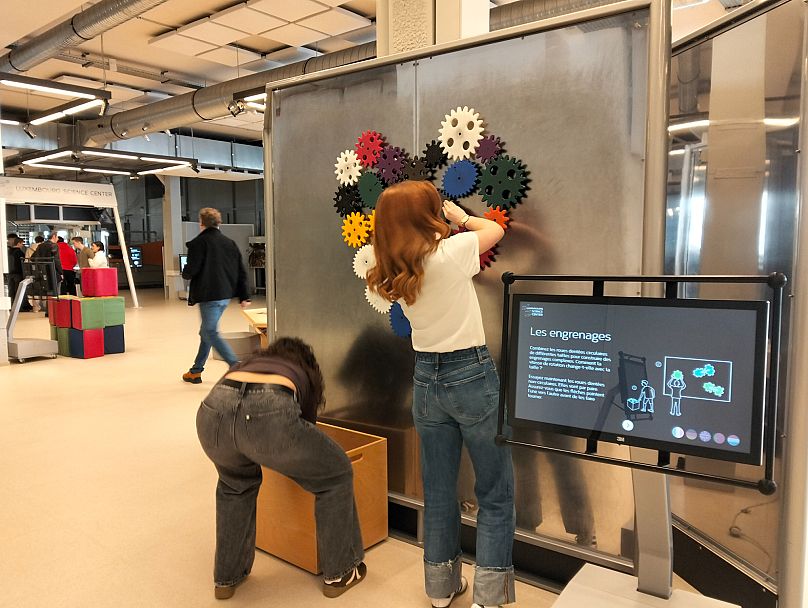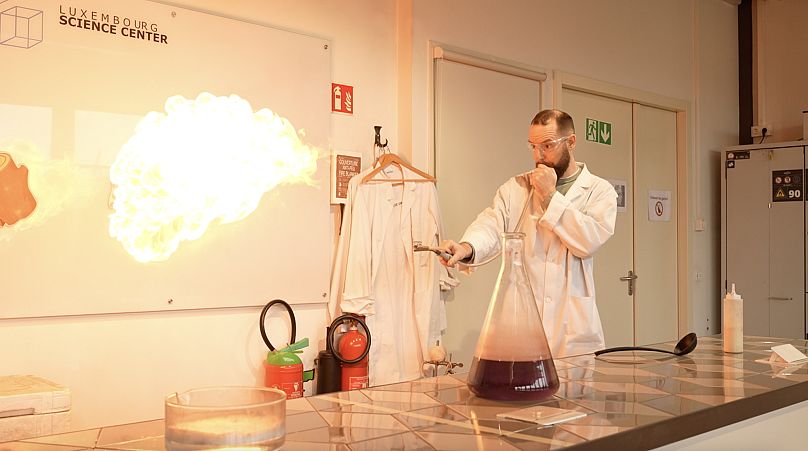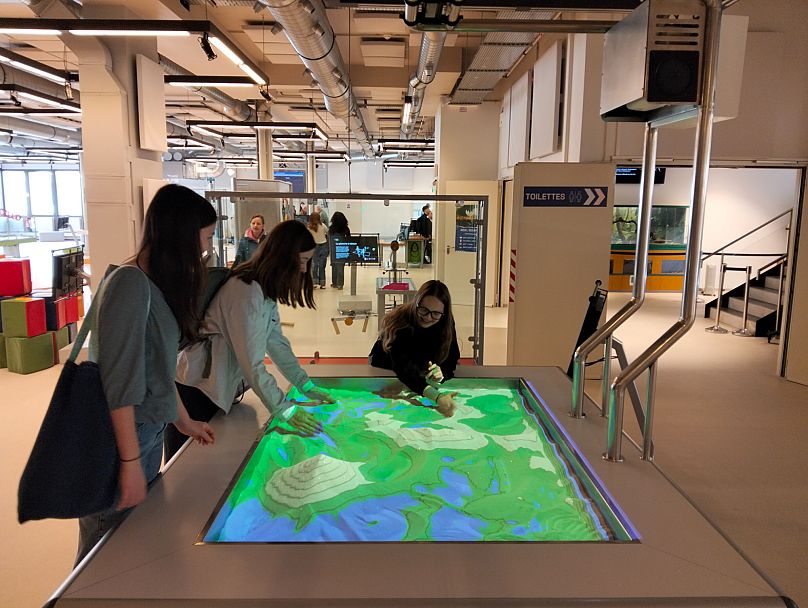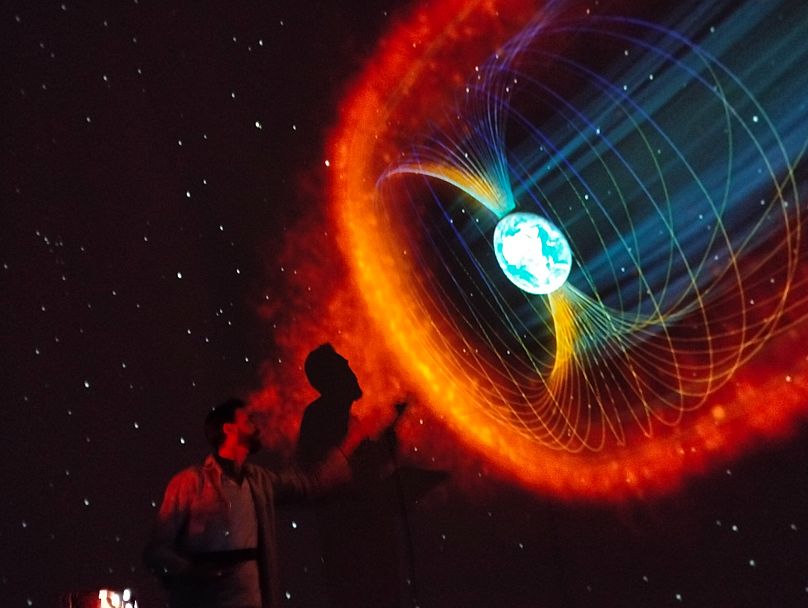Would you have a go at playing table football against a robot or feeling electricity in your body? At the Luxembourg Science Center, science and technology come alive with interactive exhibitions and surprising workshops. Ready for adventure?
In this episode of Smart Regions, we travel to the south of Luxembourg to explore the Luxembourg Science Center, a science and technology museum, co-funded by the European Union, where children and adults learn in a playful way about the mysteries of the universe.
Don't panic if you see a student with her hair completely electrified by static electricity in one of the electrical workshops offered by the museum, or a group of young people playing table football against a robot, and losing the game.
"Science is very abstract and many people are afraid of it. Our idea is to bring it closer to the public and see how we can interact with science, touch it, smell it, listen to it," explains Nancy Racké, director general of the Luxembourg Science Center.
The nearly 70,000 visitors who come every year are the stars of this museum, which has nearly 100 interactive exhibitions and spectacular workshops guided by scientific mediators who are experts in each of the subjects.
Our visit coincided with that of the International School of Differdange. Twenty young people aged 13-14 years enter the interactive exhibition area with smiles on their faces.
A group of students approach the plasma ball, one of the largest in the world. They place their hand on the glass and see how the electric field is altered, forming thick beams that are directed towards their hands.
Another group of pupils run to play table football against a robot. When we go over to watch the game, the screen shows a 3 for the robot and a 0 for the humans. Others are played in the Augmented Reality sandbox, where they can shape and view topographical levels. Others try putting their fingers on electrically conductive plates that give them a small electric shock. This is a high voltage experience!
"I would like to bring my friends because it is a very good experience. We learn and have fun. We can study at school, but we can't study and have fun at the same time, so it's great when we come," says Tommy Bianchi-Torraile, one of the students at the International School of Differdange.
Each of the experimental stations has a touch screen in five languages (English, French, German, Luxembourgish, Portuguese and German) explaining the experience, its history and use.
We accompanied the pupils to a chemistry workshop with one of the mediators. They listen attentively to explanations about plastics and polymers.
"This workshop prepares us for the chemistry exam we will have soon, we learn in a more fun way. We remember concepts more easily through experiences because it allows us to visualise the issues and helps us understand them better," says Tommy Bianchi-Torraile.
Julien Laigle is the scientific mediator with expertise in astronomy. He never stops working because the EU-co-funded planetarium at the Luxembourg Science Center is one of the main attractions. It allows us to travel the Universe without the need for a telescope or good weather.
Julien Laigle tells us that children are the most excited about it. "You get very positive feedback and that makes it a very rewarding job," he explains excitedly.
A wide range of experiences at the Luxembourg Science Center, including the planetarium and other research equipment, have cost 1.5 million euros. 40% has been financed by the European Regional Development Fund (ERDF), the remaining 60% has been financed by the Luxembourg Ministry of Education.
From exploring the cosmos to challenging a robot to tic-tac-toe. Science and technology are accessible to all in this interactive museum in the heart of Europe.












